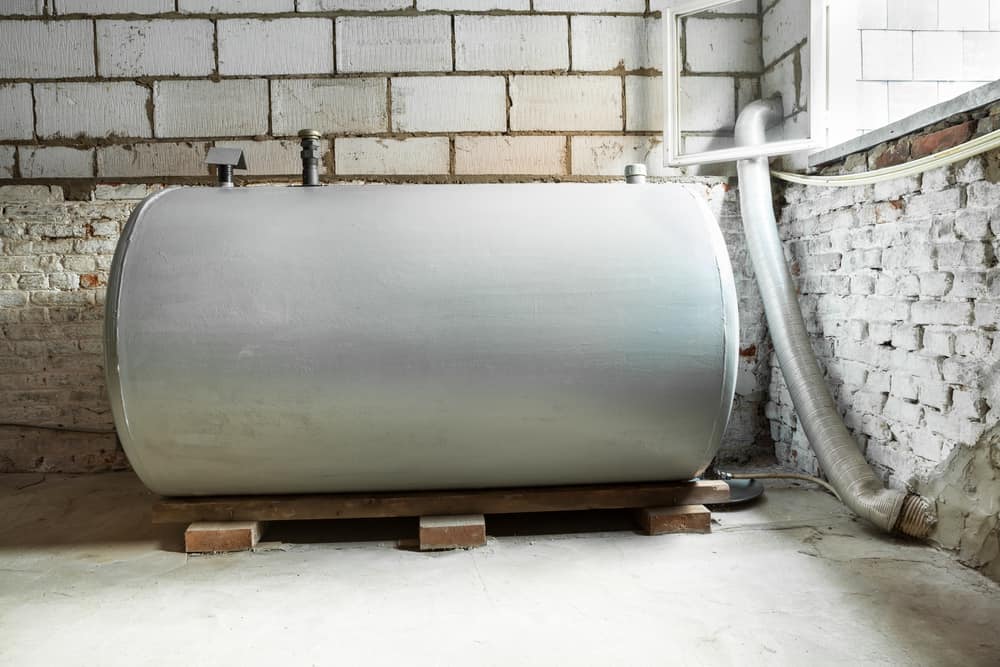Optimize oil furnace performance and longevity through proven maintenance strategies recommended by Consolidated Energy - Suffolk Oil professionals.
Share:

Summary:
Modern oil furnaces operate through precise combustion control systems that mix furnace oil with carefully measured air quantities to produce clean, efficient flames that transfer maximum heat to your home’s distribution system. The combustion process involves fuel atomization through specialized nozzles, ignition timing controlled by electronic systems, and heat exchange optimization that extracts BTUs from combustion gases before they exit through the chimney. Key components include the burner assembly with its motor, pump, and ignition system; the heat exchanger where combustion heat transfers to circulating air; the blower system that moves heated air throughout your home; and safety controls that monitor operation and shut down the system if problems occur. Fuel delivery systems maintain consistent pressure through mechanical pumps while filtration removes contaminants that could damage precision components. Understanding these systems helps homeowners recognize maintenance needs and communicate effectively with service technicians. Contact Suffolk Oil we recommend that customers familiarize themselves with their specific furnace model’s requirements, as maintenance intervals and procedures vary among manufacturers and system ages. Proper operation depends on each component functioning within design specifications, making regular maintenance critical for system reliability and efficiency.
Air filter replacement every 1-3 months prevents dust and debris accumulation that restricts airflow, forces blower motors to work harder, and reduces heat transfer efficiency throughout your heating system. Clogged filters create pressure drops that can trigger safety shutdowns, reduce air circulation by 20-40%, and allow contaminants to reach sensitive heat exchanger surfaces where they interfere with thermal transfer. High-efficiency pleated filters capture smaller particles but require more frequent replacement, while standard fiberglass filters cost less but provide minimal protection against fine dust that accumulates on system components.
Air filter replacement every 1-3 months prevents dust and debris accumulation that restricts airflow, forces blower motors to work harder, and reduces heat transfer efficiency throughout your heating system. Clogged filters create pressure drops that can trigger safety shutdowns, reduce air circulation by 20-40%, and allow contaminants to reach sensitive heat exchanger surfaces where they interfere with thermal transfer. High-efficiency pleated filters capture smaller particles but require more frequent replacement, while standard fiberglass filters cost less but provide minimal protection against fine dust that accumulates on system components.
Want live answers?
Connect with a Suffolk Oil expert for fast, friendly support.
Annual professional maintenance involves comprehensive system inspection, testing, and adjustment procedures that identify potential problems before they cause failures or efficiency losses during peak heating season. Certified technicians perform combustion analysis using electronic instruments that measure oxygen levels, carbon monoxide production, and flame temperature to optimize burner settings for maximum efficiency and safety. Heat exchanger inspection includes visual examination for cracks, corrosion, or blockages that could compromise heat transfer or create dangerous exhaust gas leaks into living spaces. Electrical system testing verifies proper operation of safety controls, ignition components, and motor functions that protect your system and prevent dangerous operating conditions. Fuel system service includes filter replacement, pump pressure testing, and leak detection that maintains reliable fuel delivery while preventing contamination. Consolidated Energy – Suffolk Oil coordinates with qualified service technicians who understand local conditions and can provide maintenance scheduling that fits your needs. Professional maintenance typically costs $150-300 annually but prevents repairs averaging $500-1,500 while maintaining peak efficiency that saves 10-20% on annual fuel consumption. Service agreements often include emergency coverage and priority scheduling that provides additional value during heating season.
Regular fuel level monitoring prevents system shutdowns that can damage pumps, introduce air into fuel lines, and require professional bleeding procedures to restore operation. Tank gauges should be checked weekly during heating season, with deliveries scheduled when levels reach 1/4 tank to avoid emergency situations. Consolidated Energy – Suffolk Oil offers automatic delivery monitoring that eliminates guesswork while preventing runouts that can leave families without heat during critical periods. Remote tank monitoring systems provide real-time fuel level data through smartphone apps, though manual gauge reading remains important for backup verification.
Programmable thermostat settings can reduce fuel consumption by 8-15% through automatic temperature adjustments that lower heating demands during unoccupied periods or overnight hours. Optimal programming maintains 68-70°F during occupied periods while reducing temperatures to 60-65°F when away or sleeping, though excessive temperature setbacks can cause longer recovery periods that offset savings. Smart thermostats learn occupancy patterns and automatically adjust for maximum efficiency while maintaining comfort preferences. Proper thermostat location away from heat sources, drafts, and direct sunlight provides accurate temperature control that prevents unnecessary heating cycles.
Systematic oil furnace maintenance protects your heating investment while maintaining the reliability and efficiency that keeps Suffolk County homes comfortable throughout demanding winter conditions. Regular filter changes, professional annual service, fuel level monitoring, and thermostat optimization work together to minimize operating costs while extending equipment life far beyond typical replacement timelines. Consolidated Energy – Suffolk Oil supports customer maintenance efforts through reliable fuel delivery, service referrals, and guidance that helps homeowners maintain optimal heating system performance. The modest investment in preventive maintenance pays substantial dividends through reduced fuel consumption, fewer emergency repairs, and extended equipment life that far exceeds maintenance costs. Contact Consolidated Energy – Suffolk Oil today to discuss maintenance support services and fuel delivery programs that keep your Suffolk County home’s heating system operating at peak performance throughout the heating season.
Continue learning:
Useful Links
Our Social Media